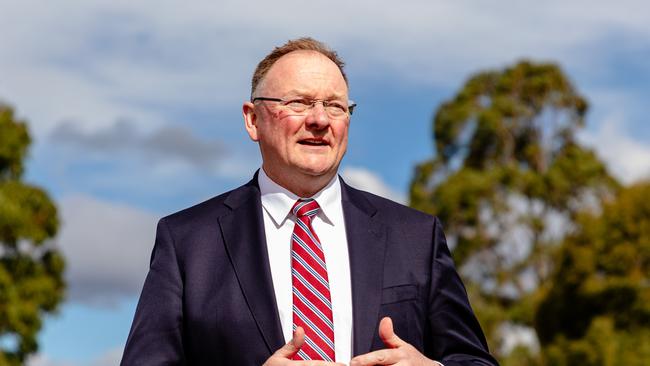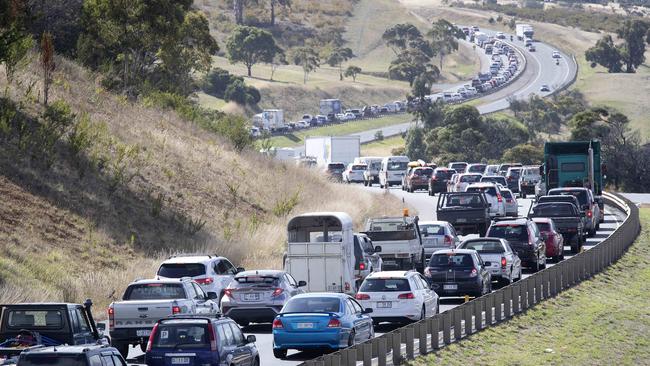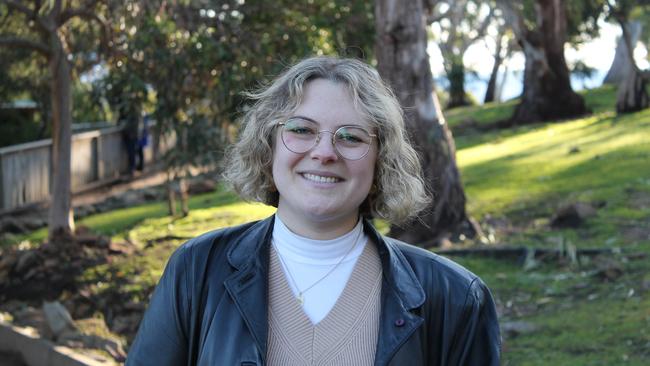Tasmanian government’s transport emissions reduction draft plan criticised for ‘lack of commitment’
A document outlining the state government’s plans to slash transport emissions in Tasmania has been sharply criticised by climate action advocates, who say it demonstrates a “frightening lack of commitment”.

Tasmania
Don't miss out on the headlines from Tasmania. Followed categories will be added to My News.
The state government’s draft plan to slash greenhouse gas emissions in Tasmania’s transport sector has been lambasted for a “frightening lack of commitment” to climate action.
The government last week released for consultation the draft emissions reduction and resilience plan for the transport sector, which is a requirement under the Climate Change Act.
The object of the act is to achieve net zero greenhouse gas emissions or lower from June 30, 2030. The transport sector accounts for 21 per cent of the state’s total emissions.
The transport sector plan must be finalised by November 30, while the plans for other key sectors are due by the same date next year.

Researcher and Climate Tasmania member, Rachel Hay, said the draft plan made no new commitments to emissions reduction policies in the transport sector, such as increasing bus services or financial incentives for electric vehicle purchases.
“The lack of commitment to climate action shown by the Tasmanian government in its draft transport sector decarbonisation plan is frightening,” she said.
“The plan is only that in name – it makes no further commitments which will reduce emissions in the transport sector, merely identifying current actions and ‘future opportunities’.
“To prevent the worst effects of climate change in lutruwita/Tasmania, the Government needs to show the people how it will reduce transport emissions. Not at some unspecified future point, but now, as is required by the Climate Change Act.”

Ms Hay also criticised the lack of targets for electric vehicle uptake and overall emissions reduction in the sector. The Tasmanian Policy Exchange (TPE), a think tank at the University of Tasmania, has recommended that the government formally adopt a transport emissions reduction target of 37 per cent by 2030.
TPE director, Professor Richard Eccleston said the government must adopt an emissions reduction target for the sector in the final plan.
“There needs to be that accountability. The government does it in other areas, like their renewable energy target. All other states do it,” he said.
The priority areas laid out in the draft plan include:
– Increasing the use of public and active transport in Tasmania.
– Increasing the number of low emissions cars and other light vehicles on Tasmania’s roads.
– Increasing the number of low emissions heavy vehicles on Tasmania’s roads.
– Supporting the transport sector to transition to low emissions and build resilience.
– Supporting action through partnerships with governments, industry and other stakeholders.
Emissions from transport have increased by 9 per cent in Tasmania since 1990, as the number of vehicles on the state’s roads has increased, reflecting population growth.
Tasmanian vehicles have the oldest average age of any state or territory fleet at 13.21 years, meaning vehicles are more likely to produce higher emissions. The state also has a higher number of vehicles per person than the rest of the nation.

Environment and Climate Change Minister Roger Jaensch said last week that the draft plan was the product of “extensive consultation”.
“We recognise that to be effective we need all levels of government, industry and the community to work together on practical solutions,” he said.
The Greens moved a motion in state parliament on Wednesday, calling for the declaration of a climate emergency. It was voted down after the Liberals and Labor together rejected the motion.
“While we didn’t expect the Liberals to support our move to declare a climate emergency, it was deeply disappointing Labor voted with the government to defeat such a basic, commonsense step,” Greens leader Rosalie Woodruff said.
Labor resources spokesman Shane Broad told the parliament that the motion called for industries to be “shut down” and for the government to stop releasing new mineral exploration areas for fossil fuels, which he said could have “unintended consequences”.





